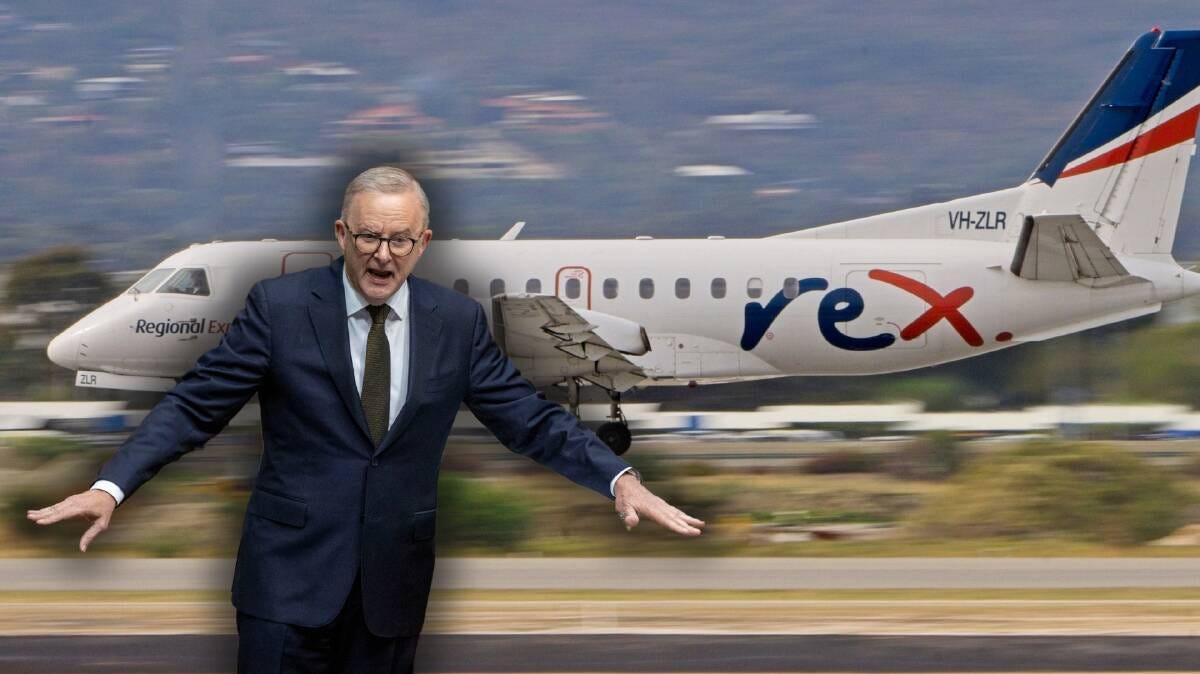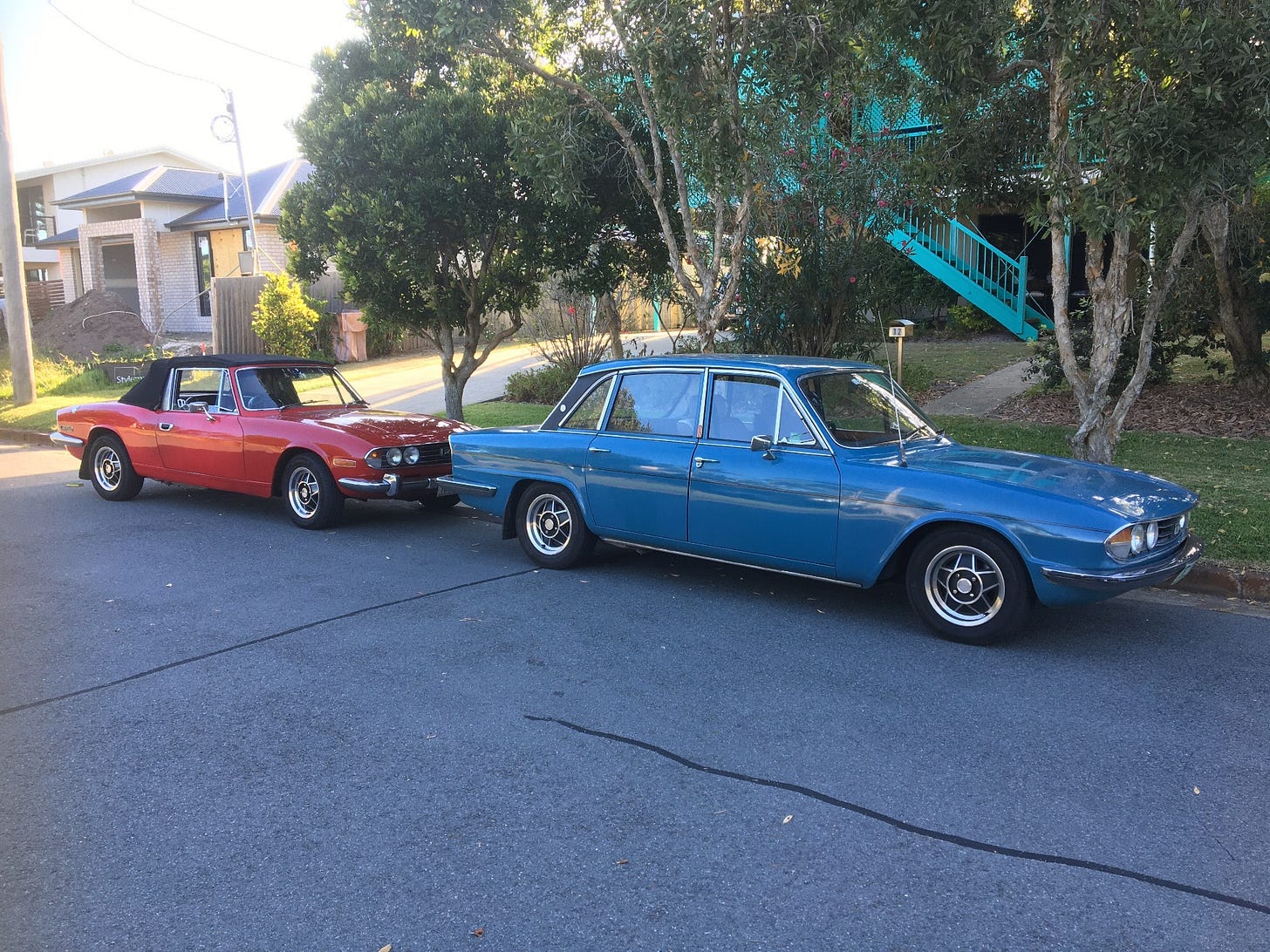Canberra Times
By Scott Prasser
February 18 2025
Proposals by the Albanese government that it might buy the financially stressed Rex Airline - which has $500 million of debt - if no private buyer can be found is reminiscent of the Chifley Labor government's failed attempt to nationalise the country's airlines and banks during the 1940s.
Let's not forget the government has already provided $130 million in debt repayment and support to keep Rex's planes flying to its many regional destinations.
The federal government is preparing to step in and nationalise regional airline Rex if a private buyer cannot be found.
Nationalisation of private enterprises was all the rage in the 1940s to fill market gaps left by the private sector, provide services to certain places, set the pace in wages and conditions, and to maintain employment in certain industries.
But it has long been out of favour and deemed an all-round policy failure.
The Menzies-led Liberal opposition opposed Chifley's bank and airline nationalisation, successfully making it a point of difference at the 1949 landslide election. Since then, such government businesses have gradually been sold off by both Commonwealth and state governments, though some notable ones remain.
The Hawke-Keating Labor governments' microeconomic reforms led to the privatisation of Qantas in 1993. State banks and insurance office and printing enterprises, communication bodies and others have all gone the privatisation route - largely for the better.
Government ownership and nationalised industries mean every decision becomes a political one. What services are provided, staffing numbers, wage rates and investment decisions are all made on short term political rather than financial or economic criteria.
Prime Minister Anthony Albanese is waiting to see whether his airline nationalisation idea takes off. Pictures Shutterstock, ACM
Usually, nationalised industries get starved of investment, services and products become out of date, they are prone to over-staffing and featherbedding, innovation is stifled and flexibility and initiative frozen.
Nationalised enterprises inevitably are run like any government department where process and hierarchy dominate. Workers and management know that whatever mistakes occur, whatever the costs overruns, whatever consumers dislike, whatever the size of the losses, whatever the shoddiness of the product, government will always bail them out, so why bother to strive for efficiency or to grow market share?
Owning two English cars, I have experienced the products of a nationalised industry - British Leyland. Taken over by the British government, it cost billions to pay out its debt and more billions to keep it going. It mostly ran at a loss, producing, with a few exceptions, shoddily built, out-of-date, and expensive cars easily outperformed by their Japanese and German rivals. It was plagued by strikes, outdated work practices, assembly line sabotage, weak and confused management, and poor product development. Even when Leyland was on the cusp of producing a potential winner, the opportunity was usually missed. Margaret Thatcher eventually sold Leyland off and it disappeared, with the other companies picking up its worthwhile bits.
There is now no British-owned large mass-production car manufacturer.
So, it seems any notion of an Australian government owning and running an airline like it used to is a very bad idea. And we know why the Albanese government is doing it - not with some vision of industry renewal but short-term politics to shore up its lagging regional vote. This has the bonus of embarrassing the National Party given its regional base.
Will the Nationals convince their more market economic oriented Liberals to match Labor's Rex Airline takeover? It is a return to the classic case of the National Party tail possibly wagging the Liberal Party dog and setting the Coalition's policy direction regardless of the wider public interest.
There is an issue of credibility at stake here too. The Liberal shadow treasurer has been talking big about reducing government spending and waste.
Details so far are scarce. Promising to match Labor to prop up a debt-laden airline is hardly a good place to start.
With an election about to be called, it is time the Coalition clarified just where they stand on this issue and, most importantly, just what are the principles underlying their future industry policies? Politically, Opposition Leader Peter Dutton has to show leadership about who is really in charge of the Coalition - the Liberals or the smaller National Party?
Dr Scott Prasser edited the book Tragedy without Triumph: The Coalition in Office 2013-2022 and worked in federal government. Order HERE
Scott’s British cars – 1971 Triumph Stag and 1977 Triumph 2500 S type sedan





The continued investment of billions into backward regions seems increasingly questionable when the vast majority of Australians reside in coastal cities. This demographic reality raises serious questions about resource allocation.
The rising tax burden is concerning - we're seeing historically high tax-to-GDP ratios.
The Liberal Party's silence on this issue is particularly frustrating. For a party that claims to champion free market principles, their reluctance to address this fiscal imbalance represents a persistent failure of leadership.
The tax-to-GDP ratio should be pushed back down to its historical levels of 21-23%, rather than accepting the projected 25-27%. We need a structural shift away from income taxes toward greater reliance on GST and land taxes. While there's some progress on land tax reform, it's not enough.